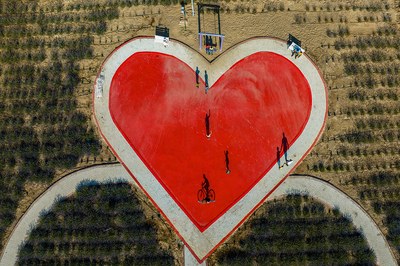All official European Union website addresses are in the europa.eu domain.
See all EU institutions and bodiesDespite progress in some EU Member States to reduce their use, pesticide pollution still poses significant risks to human health and the environment, according to a European Environment Agency (EEA) briefing published today. To reverse this, much more needs to be done to achieve the EU’s zero pollution targets to reduce by 50% the use and risk of chemical and more hazardous pesticides by 2030.
Widespread pesticide use is major source of pollution — contaminating water, soil and air, driving biodiversity loss and leading to pest resistance. Human exposure to chemical pesticides is linked to chronic illnesses, such as cancer, and heart, respiratory and neurological diseases.
The new EEA briefing ‘How pesticides impact human health and ecosystems in Europe’ summarises the latest knowledge on how chemical pesticides impact our health and the environment and presents good practices to reduce their use and risk across Europe. It showcases good practices for how to reduce pesticide use and manage the associated risks without jeopardizing food supply.
Pesticide use and impacts: what we know
Europe’s agriculture sector still relies on using high volumes of chemical pesticides to maintain crop yields, with the volume of pesticides sales having remained stable over the past decade. Pesticides are also used in forestry, and along roads and railways, as well as in public parks, playgrounds or gardens widely used by the public — particularly by children, pregnant women and the elderly, groups more vulnerable to pesticides.
From 2011 to 2020, pesticide sales in the EU-27 Member States remained relatively stable at around 350,000 tonnes per year.
In 2020, one or more pesticides were detected above thresholds of concern (a risk to human health) at 22% of all monitoring sites in rivers and lakes across Europe. In terms of soil pollution, 83% of agricultural soils tested in a 2019 study contained pesticide residues.
Pesticide pollution is one of the key drivers of biodiversity loss in Europe. In particular, pesticide use has caused significant declines in insect populations, threatening the critical roles they play in food production, in particular the pollination of most fruit and vegetable crops.
People are mainly exposed to pesticides through diet, including food and drinking water, as well as by spending time in areas where pesticides are applied and, for agricultural workers, at the workplace. A large-scale human biomonitoring study conducted between 2014 and 2021 across five European countries found at least two pesticides present in the bodies of 84% of survey participants.
Pesticide levels were consistently higher in children than in adults, with children being particularly sensitive to the negative health impacts of chemicals. Human exposure to chemical pesticides is linked to a range of serious chronic diseases, such as cancer, and heart, respiratory and neurological diseases, as well as developmental delays in children.
Meeting the targets — reducing pesticide use
In 2020, the European Commission’s Farm to Fork Strategy introduced two pesticide reduction targets: a 50% reduction in the use and risk of chemical pesticides and a 50% reduction in the use of more hazardous pesticides. The Strategy is a key part of the European Green Deal and aims to make Europe’s food systems fair, healthy and sustainable. Achieving the targets will require more work by EU policymakers and Member States, the briefing notes.
The European Commission recently proposed a new regulation on the sustainable use of pesticides, which would require countries to set their own national reduction targets, ensure that all farmers and other professional pesticide users adopt environmentally friendly systems of pest control, and restrict the use of pesticides in sensitive areas such as urban green areas and protected areas. Other measures discussed in the briefing include training professional users and advisors, incentivizing the transition to organic and precision farming, and taxing the most hazardous pesticides.
To reduce dependency on chemical pesticides and maintain food security, it will also be critical to promote the shift to alternative models of agriculture that apply ecological concepts and principles to agricultural production, the EEA briefing suggests.










